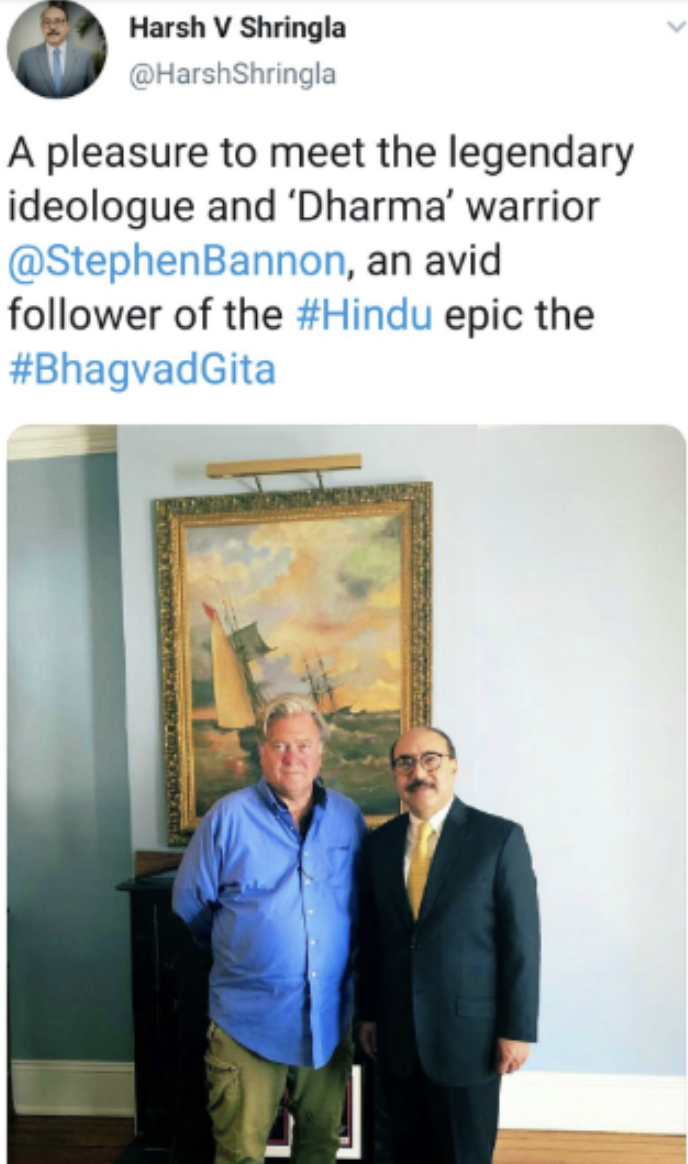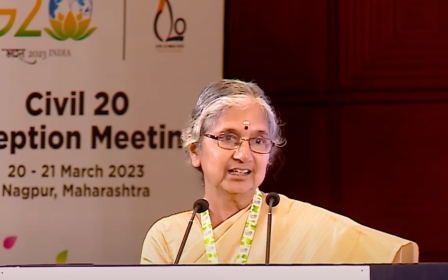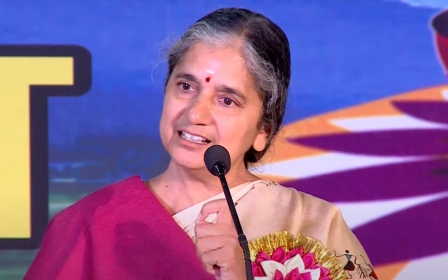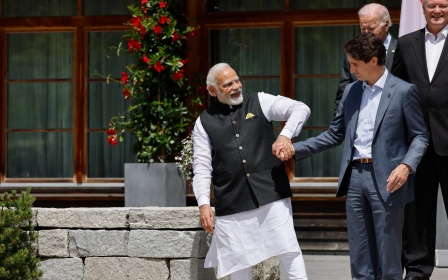India intervened to reinstate Hindu nationalist at interfaith conference
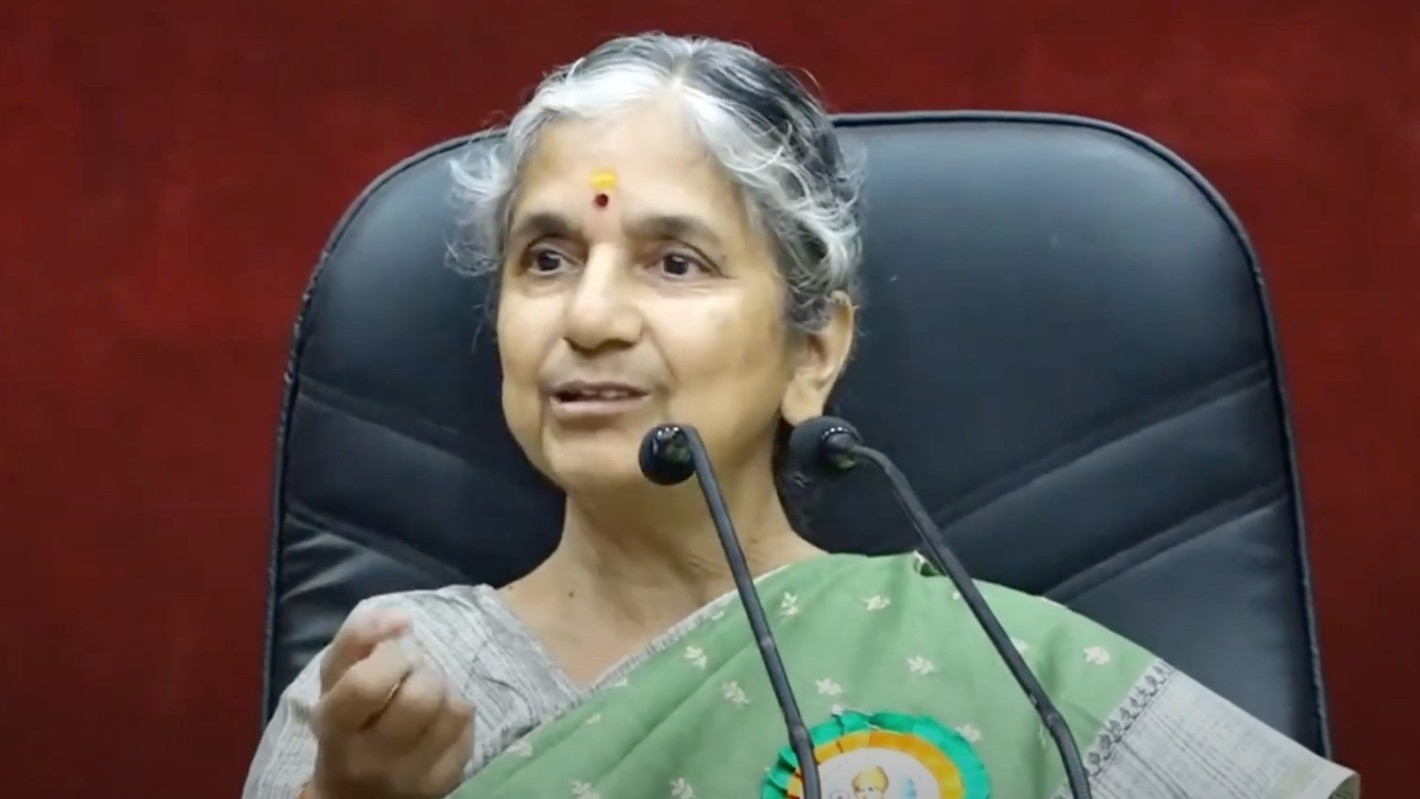
The Indian government attempted to pressure a global interfaith conference to reinstate a Hindu leader after she was removed from the event due to her ties to the Hindu far right, Middle East Eye can reveal.
According to an email seen by MEE, the Indian consulate in Chicago urged organisers at the Parliament of World Religions (PoWR) to reconsider their decision to axe Nivedita Bhide, the vice president of Vivekananda Kendra, from speaking at the five-day event.
For weeks, Bhide was listed as a "featured luminary" on the PoWR website, but days before she was expected to address a plenary on 14 August, her name was dropped following revelations that she routinely reshared Islamophobic material on her social media accounts and participated in events organised by far-right groups.
A source at the PoWR confirmed to MEE that Bhide had been pulled from the programme after concerns were raised that her presence went against the spirit of the event.
On the day she was originally scheduled to speak at the event, the consul general of India in Chicago, Somnath Ghosh, sent an email to PoWR organisers, urging them to reconsider their decision.
New MEE newsletter: Jerusalem Dispatch
Sign up to get the latest insights and analysis on Israel-Palestine, alongside Turkey Unpacked and other MEE newsletters
"In the last couple of days, the Consulate has received calls and communications from a large number of members of [the] Indian diaspora, expressing their deep concerns at the denial to Ms Nivedita Bhide, to speak in the World's Parliament of Religions, despite your invite to her and her arrival in Chicago," the email read.
"While it is the prerogative of the organizing authority to decide who will speak in the Parliament, the Consulate is not aware of any possible reason or association of Ms Bhide with any entity, which could be seen as illegal or deeply objectionable.
"We hope that that decision to deny Ms Bhide to speak could be repealed and she will be given the floor to speak as was planned, in the Parliament from 14-18 August 2023," the email added.
The chair of PoWR, Nitin Ajmera, confirmed receipt of an email from the Indian consulate but wouldn't comment further on the matter.
"We are still working on that matter and no comments yet from our side," Ajmera told MEE.
MEE reached out to the Indian consulate in Chicago on multiple occasions but did not receive a response by the time of publication.
'Unprecedented'
India analysts and academics told MEE that the letter illustrated the Indian government's sensitivity to any criticism as well as its guardianship of Hindu nationalism on the world stage.
Rohit Chopra, professor of communications at Santa Clara University, said it was remarkable that the Indian government felt the need to intervene on behalf of an individual - who was neither an Indian government official or a diplomat - and was de-platformed over their Hindu nationalist views.
"My reaction is paradoxical. On the one hand, I am stunned. On the other hand, it is not unexpected because it is completely consistent with the fact that the Indian consulates [in the US] have been very much enforcing a Hindu right-wing agenda," Chopra told MEE.
Chopra said that while successive Indian governments were sensitive about protecting India's image abroad, the interference from Narendra Modi's administration was unprecedented.
"The extent to which they [Modi's government] have tried to - not just control the message - but intimidate people who say anything who doesn't fit with their message is just absolutely ridiculous," Chopra said. "What we are seeing here is very consistent with that."
Chopra added that academics and activists in the US and the UK who raised concerns over Indian policies were often tracked, harassed or intimidated.
Citing the case of the Dismantling Global Hindutva Conference of 2021, he said that large segments of Indian media, online troll accounts and ideologues attempted to dismiss the conference as "Hinduphobic."
Academics were sent rape and death threats, while the organisers were accused of trying to distract from the Taliban takeover of Afghanistan.
Dheepa Sundaram, assistant professor of Hindu Studies at the University of Denver, said the attempt to pressure PoWR fits recent trends in the US, where there has been a concerted effort by Hindutva-aligned organisations to stifle dissent.
"In recent years, Hindutva organisations in the US have attempted to stifle critiques of the Modi government as 'Hinduphobic' thus projecting critiques of Hindutva as necessarily attacks on Hindus, Sundaram said.
"I think interventions like this show the broader ideological project of Hindutva, which is to convince the world that Hindutva is the true Hinduism," Sundaram added.
'Israeli Model'
In recent years several senior Indian diplomats in the US have either defended or spouted far-right Hindu nationalist talking points.
In September, Harsh Shringla, the then-Indian ambassador to the US, met with Donald Trump's media strategist, Steve Bannon.
At the time, sources told The Wire the meeting was about India seeking approval for its actions in Kashmir after Delhi revoked Article 370 and Article 35A, thereby ending Kashmir's semi-autonomous status.
Shringla originally shared a photo of the meeting on Twitter. Hours later, he deleted the tweet.
Then, in November, the then-Indian consul general in New York called for India to replicate the Israeli settler model in Indian-controlled Kashmir.
Chopra, from Santa Clara University, said the Indian government and its representatives in the US were likely emboldened by Washington's warm embrace of Modi when he visited in June, as well as Congressman Ro Khanna's recent visit to Delhi in which he also publicly met far-right wing ideologues like Abhijit Iyer-Mitra.
"By and large, it was a symbolic triumph for Modi - or at least it was painted that way - and in a sense Modi was launching his domestic 2024 election campaign with that visit as well," Chopra said.
"It's been interpreted as a win and it has emboldened the Hindu right and it has emboldened the government," he added.
Despite the PoWR's decision to remove Bhide from speaking at the conference, the Coalition of Hindus of North America (CoHNA), a Hindu advocacy organisation known for its deep links with far-right Hindu organisations was granted permission to hold an event.
The Bridge Initiative at Georgetown University describes CoHNA as a supporter "of the discriminatory policies of India’s ruling Bharatiya Janata Party (BJP) and [as having] engaged in campaigns targeting academics and politicians who call attention to the dangers of Hindu nationalism".
Middle East Eye delivers independent and unrivalled coverage and analysis of the Middle East, North Africa and beyond. To learn more about republishing this content and the associated fees, please fill out this form. More about MEE can be found here.


